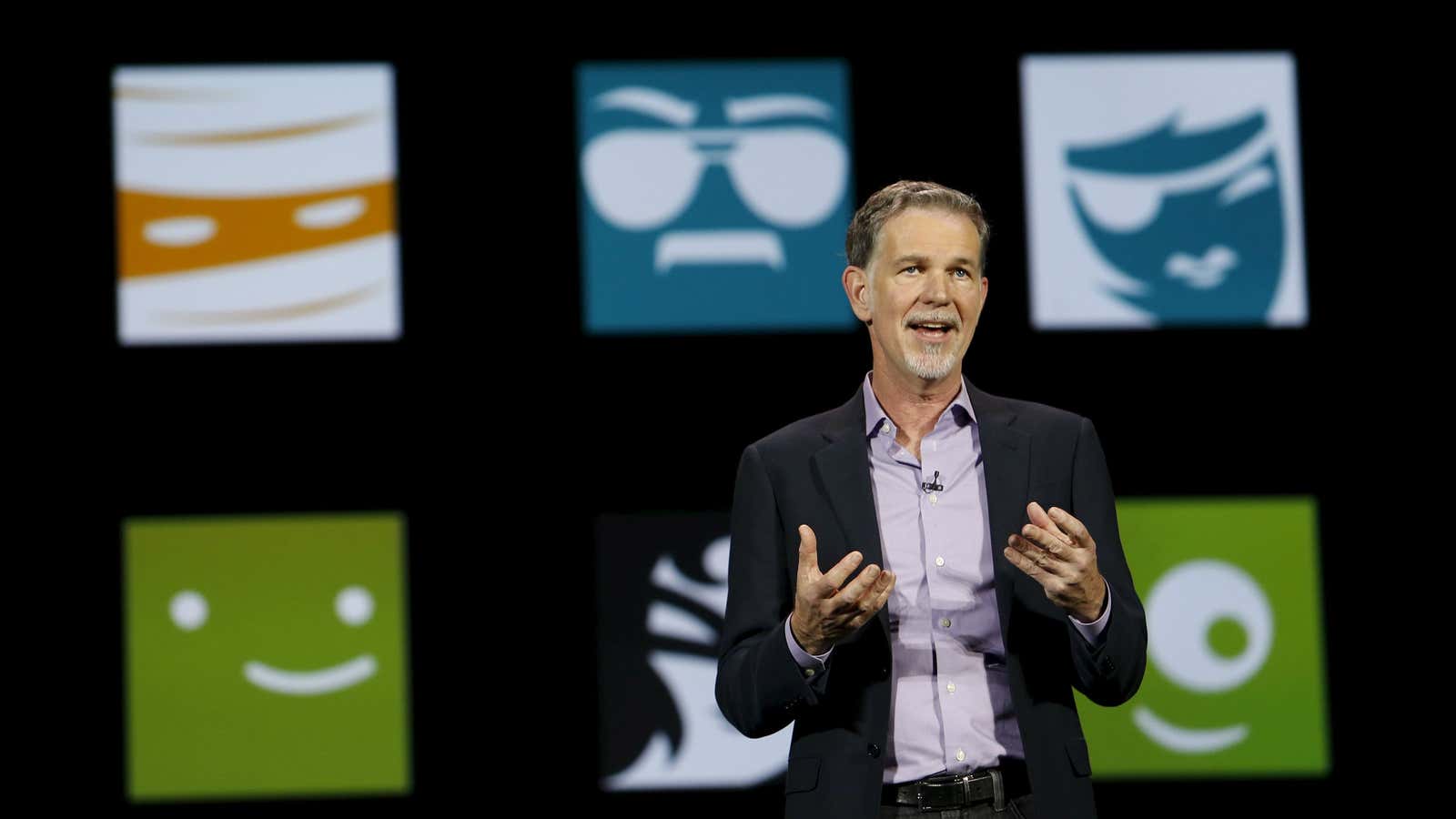Apple boss Tim Cook predicted in 2015 that “the future of TV is apps.” That future is here, says one of media’s biggest CEOs. Launching a TV network is now as easy as building an app.
“The great thing now is it’s easier to create a TV network, called an app,” said Netflix chief executive Reed Hastings, in an earnings interview yesterday. “All apps on your phone will have some form of video, or most apps will. And so you just see a very wide spread of entertainment options, some of which are movies and TV shows, some are more interactive.”
The shift comes as people around the world watch more video on their mobile phones and households adopt streaming-media players like Roku and Google’s Chromecast or connected and smart-TVs. Roku supports more than 5,000 streaming apps in the US. Media giants like Disney and Turner are launching new TV apps to contend with consumer shifts way from traditional channels. Social media networks like Facebook and Twitter are focusing more on video. And newer streaming services like Philo are entering the fray.
With all of these apps, Netflix is in the position of the big three US broadcasters—ABC, CBS, and NBC, which dominated TV until the 1980s—when cable-TV networks began booming and fragmented the market, Benjamin Swinburne, analyst at Morgan Stanley, said on the webcast. It’s the established player fending off new apps competing for its audience. Those traditional broadcasters lost viewership as audiences split their time with other channels.
Hastings said Netflix still has a lot of room to grow. “We’re a fraction of the hours of viewing of YouTube,” he said. “We’re a fraction of the hours of viewing of linear TV.” He agreed the crowded marketplace means Netflix will have to prove itself to customers every month in order to keep its app on home screens, mobile, and TV.
“You’re right that there are so many competitors, especially around the world… whether our share of that grows or shrinks is really up to, do we produce great content, market it well, serve it up beautifully?” said Hastings. “If we do that really well, if we earn more of consumers’ time, then we continue to grow. And if we get lazy or slow, we’ll be run over, just like anybody else.”
To avoid being run over, Netflix is spending $8 billion on content this year, and another $2 billion on marketing. It’s also investing $1.3 billion in technology and development to make productions more efficient and help its content land globally.
